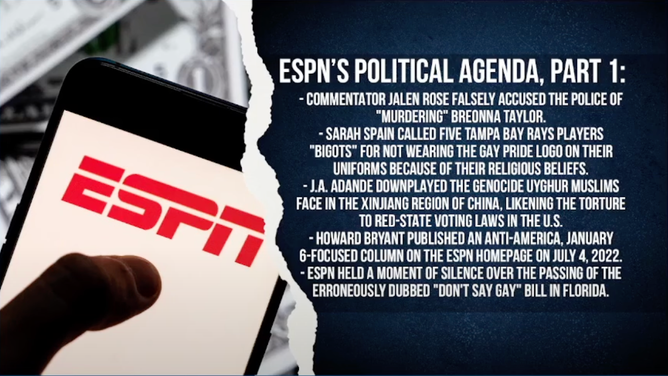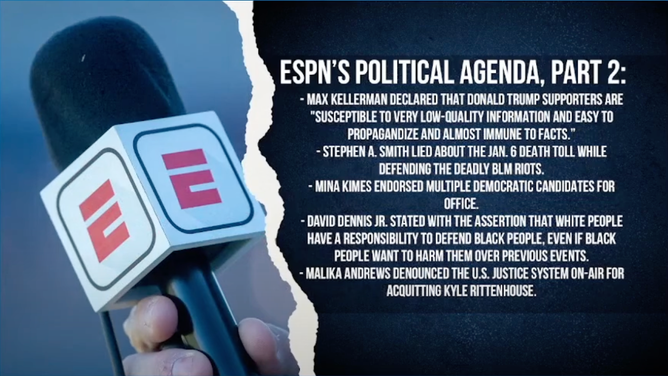Dan Dakich Details How 'Little Mouse' Jimmy Pitaro Is Responsible For ESPN Not Playing National Anthem
OutKick published a column earlier this week after speaking to several sources inside ESPN about the widely panned decision to censor the showing of the national anthem and moment of silence ahead of last week's Sugar Bowl in New Orleans, a day after a deadly terror attack in the host city.
Overwhelmingly, our sources detailed how the blame falls on the shoulders of ESPN chairman Jimmy Pitaro, whose toxic culture led to the same network that highlighted the NBA protesting the anthem in the name of BLM in 2020.
In short, Pitaro originally installed a "no politics culture" within ESPN. His vision was successful. Race and politics were mostly excluded from the conversation. Under Pitrao, ESPN was simply a sports network, a sports network for all sports fans.
Then, 2020 happened. More specifically, George Floyd happened.
OutKick commentator Dan Dakich further elaborated on this topic Thursday on "Don't At Me."
"As a white dude, Jimmy Pitaro is scared to death. After George Floyd's death, Pitaro went from being a leader to a little mouse.
"In fact, I've emailed Pitaro saying, 'What are you doing?' Like have you ever looked at your company? That was after Dan Orlovsky had to take down a tweet saying, "Protect our daughters" because it went against the ‘core values’ of ESPN. Think about that for a second.
"This article, Bobby Burack wrote it, it's so damn good. I don't even know how to tell you how good it is. Like, if somebody said to me, ‘Tell me how good this article is,’ I would I don't even know what to tell you. It's that good. He reported on how Pitaro enabled this culture, which led to not showing the national anthem last week.
"This is another example, under Pitaro, of ESPN either being really dumb, anti-American, or just being scared. The rhetoric out of ESPN is so ridiculous these days. No one there thought the anthem was worth showing in the face of a tragedy? Really?
"Those of you who are old enough to remember after 9/11 how a patriotic feeling exuded across all lines, including Congress. It was unifying. ESPN could have recreated that moment. Instead, they decided they didn't want to."
Dakich then read aloud several headlines from the Pitaro era of ESPN, exemplifying the culture he has enabled.
Take a look:


Put simply, Jimmy Pitaro has lost his locker room.
His employees know it. We highlighted several examples of that in our report, such as preferential treatment for black employees, silencing of conservative voices, and downplaying the concerns females have about the inclusion of trans athletes in women's sports.
We also learned that an ESPN exec ordered a reporter to "unlike" a post by Clay Travis on X while allowing Mark Jones to keep "liked" a post calling MAGA women "skanks."
You don't say?
OutKick has reached out to Pitaro, president of content Burke Magnus, SVP of communications Josh Krulewitz, and PR rep Bill Hofheimer several times for comment. None of the four have commented on the record.
ESPN has since blamed the national anthem controversy on a "timing issue" in a statement to the New York Post. Of course, the excuse fails to hold up, considering ESPN controls the television clock.
Ultimately, Jimmy Pitaro still has a chance to make this situation right. He could simply take responsibility, issue an apology to the terror attack victims, and turn the negative publicity into a positive by promoting ways to help the families of the victims.
We hope he does.
We also hope he shows more of a spine moving forward. ESPN employs many smart and talented people, in front of and behind the camera. Yet their work is often diminished by the toxic, cowardly culture over which Pitaro presides.
Watch Dakich's full segment on the topic on YouTube here.